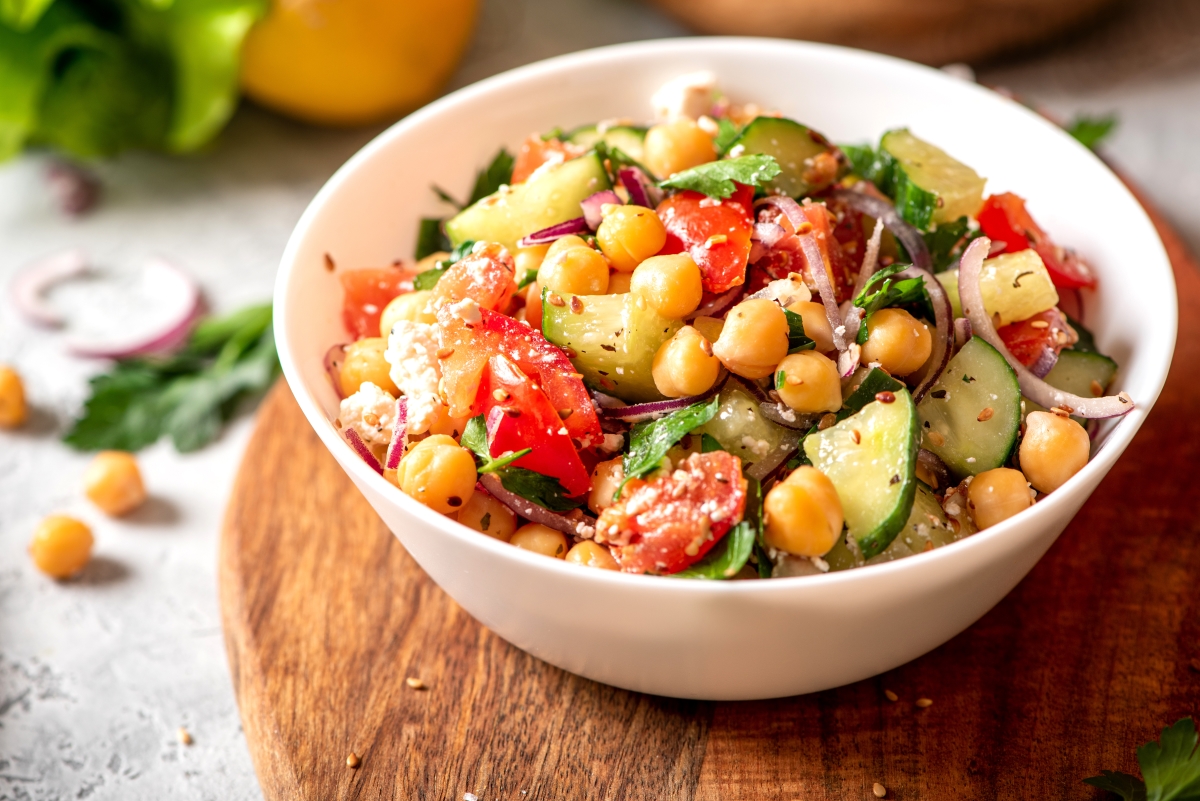Mediterranean Diet Recipes

What are the key components of the Mediterranean diet?
The Mediterranean diet is characterized by:
- High consumption of fruits, vegetables, whole grains, legumes, nuts, and seeds
- Low consumption of red meat and processed foods
- Use of olive oil as the primary source of fat
- Moderate consumption of fish and dairy products
- Occasional consumption of red wine in moderation
Sample Mediterranean Diet Recipes
Here are some delicious and healthy Mediterranean diet recipes:
Mediterranean Quinoa Salad
This salad is a great way to get your daily dose of veggies and whole grains. It's also easy to make and can be served as a main dish or a side dish.
- Cook quinoa according to package instructions
- Chop up some cherry tomatoes, cucumber, and red onion
- Mix the cooked quinoa with the chopped vegetables
- Add some crumbled feta cheese and a drizzle of olive oil
- Season with salt and pepper to taste

Mediterranean Baked Fish
This dish is a great source of protein and healthy fats. It's also easy to make and can be customized to your liking.
- Preheat the oven to 375°F
- Season your choice of fish fillets (e.g. salmon, cod, tilapia) with salt, pepper, and dried oregano
- Place the fillets on a baking sheet lined with parchment paper
- Top each fillet with sliced cherry tomatoes, sliced Kalamata olives, and a drizzle of olive oil
- Bake for 15-20 minutes, or until the fish is cooked through

Mediterranean Chickpea Salad
This salad is a great vegetarian option that is packed with protein and fiber.
- Drain and rinse a can of chickpeas
- Chop up some cherry tomatoes, cucumber, red onion, and parsley
- Mix the chickpeas and vegetables together in a bowl
- Add a crumbled feta cheese and a drizzle of olive oil
- Squeeze some lemon juice over the top and season with salt and pepper to taste

What are the benefits of the Mediterranean diet?
The Mediterranean diet has been shown to have numerous health benefits, including:
- Reducing the risk of heart disease and stroke
- Reducing the risk of type 2 diabetes
- Reducing the risk of certain types of cancer
- Improving brain function and reducing the risk of Alzheimer's disease
- Supporting weight loss and weight management
Is the Mediterranean diet suitable for vegetarians and vegans?
Yes, the Mediterranean diet can be adapted to suit vegetarian and vegan diets. Plant-based sources of protein such as legumes, nuts, and seeds are an important part of the Mediterranean diet.
Is the Mediterranean diet expensive?
The cost of following the Mediterranean diet depends on where you live and what foods are available. However, the diet emphasizes whole foods and home cooking, which can be a more affordable and healthier option than processed and convenience foods.
Can I lose weight on the Mediterranean diet?
The Mediterranean diet is not a specific weight loss diet, but it has been shown to support weight loss and weight management. This is because it is rich in fiber, protein, and healthy fats, which can help you feel full and satisfied.
Is the Mediterranean diet safe for people with food allergies or intolerances?
The Mediterranean diet can be adapted to suit different dietary needs, including food allergies and intolerances. However, it is important to consult with a healthcare professional and a registered dietitian before making any dietary changes.
Conclusion
The Mediterranean diet is a delicious and healthy way of eating that is supported by scientific research. It emphasizes whole, nutrient-dense foods and can be adapted to suit different dietary needs. By incorporating Mediterranean diet recipes into your meal planning, you can reap the many health benefits of this eating pattern.
